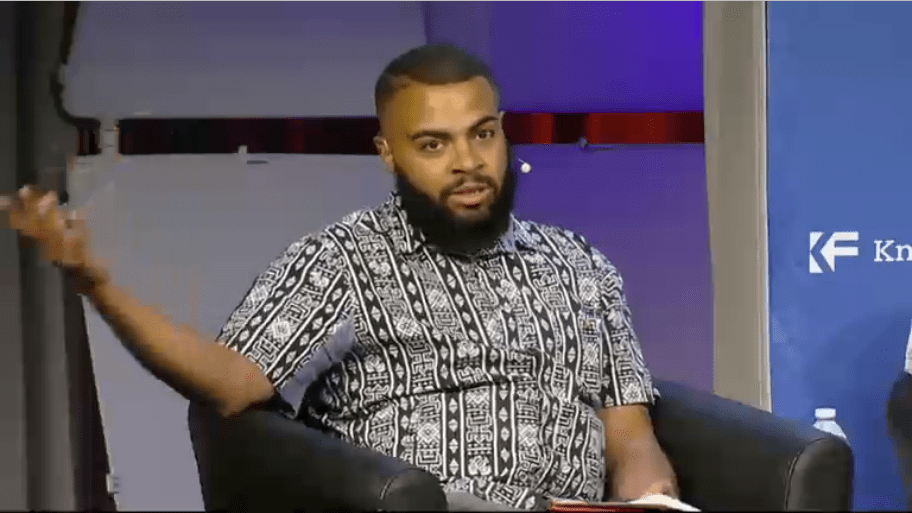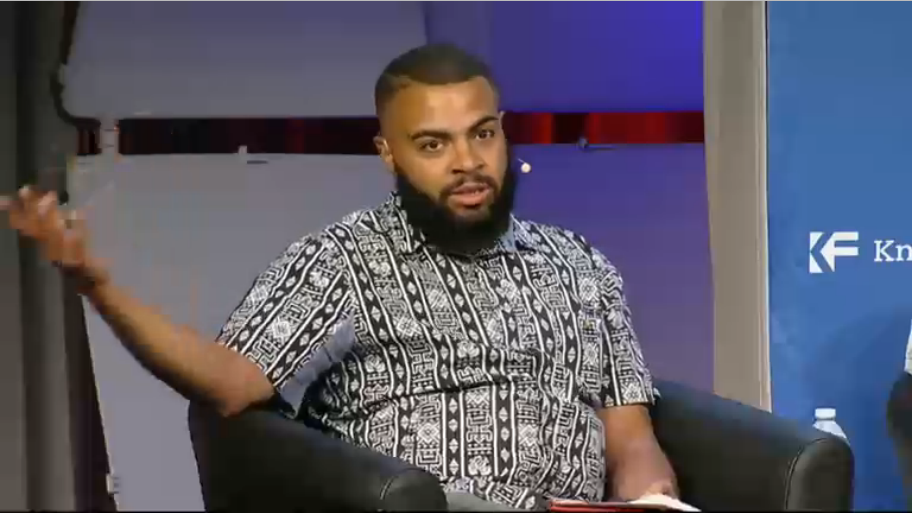
Civic media discussion mines what millennials want from the news
Photo: Tran Ha, a Knight fellow at Stanford University, participates in Millennials and News.
Trying to pinpoint how millennials consume news is as easy for some news organizations as trying to catch smoke, but opportunities abound to make news an engaging experience and relevant experience for this audience.
That was the message from a discussion featuring four media professionals with expertise in curating news for millennials held at the 2014 MIT-Knight Civic Media Conference this week in Cambridge, Mass. The discussion, facilitated by Knight Foundation Journalism Program Associate Chris Sopher, featured Stanford University Knight Fellow Tran Ha, TurboVote co-founder Katy Peters, Mikva Challenge Youth Council Program Director Chris Rudd and Jared Keller, director of programming for .Mic, (formerly PolicyMic).

Chris Rudd, of Mikva Challenge
Each panelist explained trends they see in the relationship millenials have with the news and offered their take on making the most of it. Four themes emerged:
1) Personal identities are built through actions, not associations.
One defining characteristic of millennials highlighted in the discussion was the importance of creating identity through media engagement choices.
“In the past, identity was defined by generation,” Keller said. “Now that the barriers of association have been cut down, identity is now defined by action.”
Personalizing the news for individuals might make legacy news organizations more appealing in the eyes of millennials. Peters suggested news organizations should start using big data to do that.
“If news organizations know so much about me, why can’t they just talk to me?” Peters asked.
2) Millennials care about news that relates directly to their lives.
Finding interest in news that relates directly to their lives does not mean millennials do not care about serious news. Much of the news millennials share on social media is classified as hard news. This analysis by .Mic of the 15 most shared news Stories on Facebook for the week of June 17, 2013, featured national and international hard news.
Ha presented the insights from interviews she conducted with various millennials and their news habits. Some of her respondents said news matters if it is “fact-based, timely and relevant.”
“Relevant is the key word,” Ha said. “Millennials have their own system for filtering relevant info.”
3) Engagement hinges on a worthwhile experience.
Millennials may find more value in news if news organizations reframe it as an entire experience.
Peters said what made TurboVote so successful was how the organization framed the process of voting around a personalized experience for each user.
“Its about making a true promise to millennials that they will get the stuff they need to be civically engaged,” Peters said.
4) Millennials do not like being labeled as millennials.
News organizations will sometimes define millennials with a set of basic characteristics that apply to all to make the “targeting process” as conventional as possible. This sometimes further strains the relationship between news organizations and millennials.
“No one wants to be spoken to as a millennial,” Keller said. “In fact, millennial is one of the most insulting things a young person can be called by someone older.”
The panel members suggested that if news organizations wish to become more appealing to millennials they should stop depersonalizing them.
Cody Johnson is a communications intern at Knight Foundation.
Recent Content
-
Journalismarticle ·
-
Journalismarticle ·
-
Journalismarticle ·


